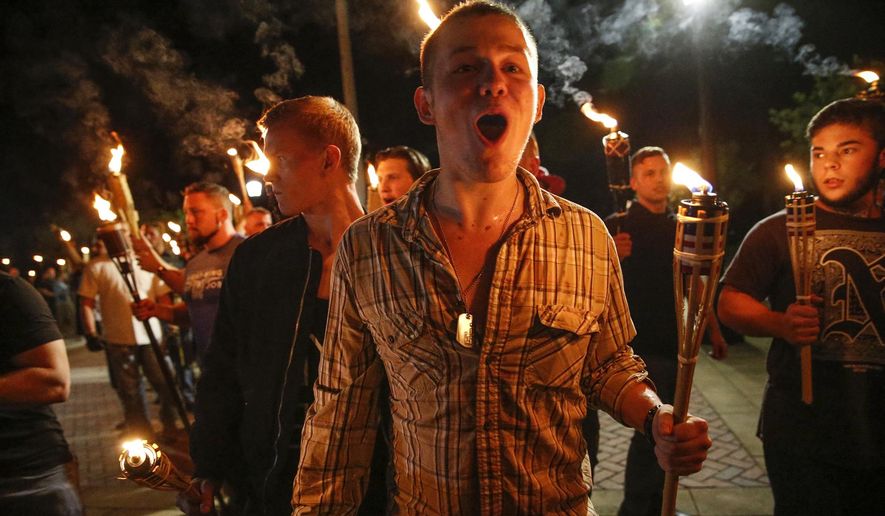The internet is fanning the flames of white supremacist domestic terrorism, a group of federal law enforcement officials told Congress on Tuesday.
Officials from the FBI and Department of Homeland Security appeared before the House Oversight and Government Reform Committee to address the rise of white supremacist domestic terrorism.
While the officials said they are working hard to stymie the rise of white supremacy, the internet is spreading hateful ideologies faster than law enforcement can keep up.
Michael McGarrity, assistant director of the FBI’s counterterrorism division, said the internet has made it easier for individuals to self radicalize or be radicalized by someone else.
“The threat has changed with the internet,” he said. “These people are self-radicalizing online and can act. They can go get a weapon.”
Elizabeth Neumann, who heads Homeland Security’s Threat Prevention and Security Policy division, agreed. She told lawmakers white supremacists are copying ideas first pioneered by international terrorists.
“Domestic terrorist movements are borrowing from the ISIS handbook, using social media to recruit, radicalize, inspire and mobilize Americans to violence,” Ms. Neumann said. “This latest evolution in terrorist’s threats occurs in relative isolation and involves a smaller window between radicalization and violent acts.
“Together, this makes it extremely difficult for law enforcement, including my partners at the FBI, to detect and thwart future attacks,” she said.
The FBI has reported a nearly 40 percent increase in domestic terrorism cases since October. Overall, the bureau has about 5,000 open terrorism cases with roughly 850 characterized as domestic terrorism.
Mr. McGarrity told the committee the bureau is making progress, telling lawmakers the FBI’s Joint Terrorism Task Force arrested 66 domestic terror suspects in fiscal year 2019.
Rep. Jamie Raskin, Maryland Democrat, questioned whether the federal government had a cohesive strategy to address the problem of white supremacy.
Absent a concrete threat, Mr. McGarrity said the bureau’s hands can be tied.
“No investigation can be opened based solely on First Amendment-protected activity,” he said. “For example, the FBI does not investigate rallies or protests unless there is a credible belief violent criminal activity may be occurring.”
• Jeff Mordock can be reached at jmordock@washingtontimes.com.




Please read our comment policy before commenting.